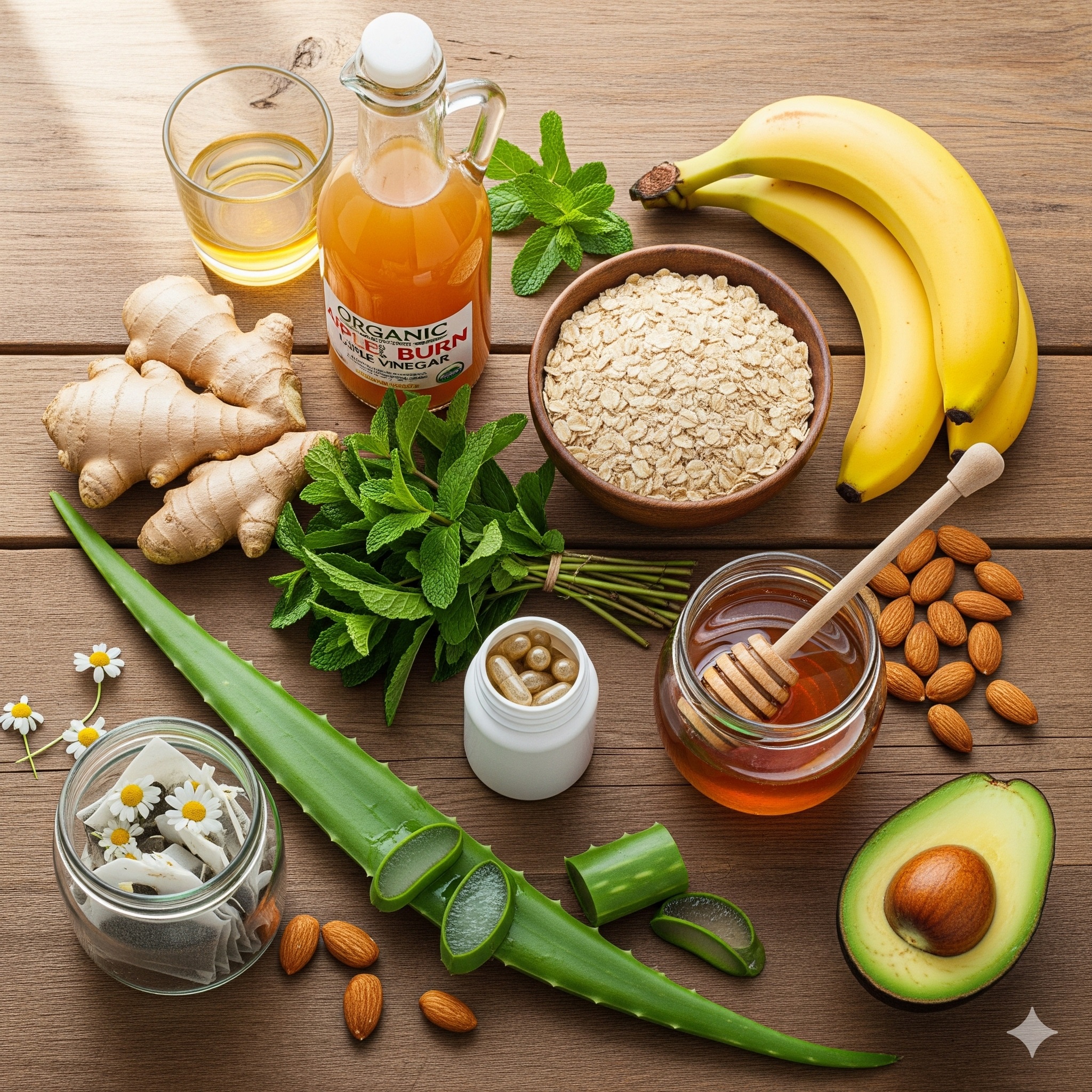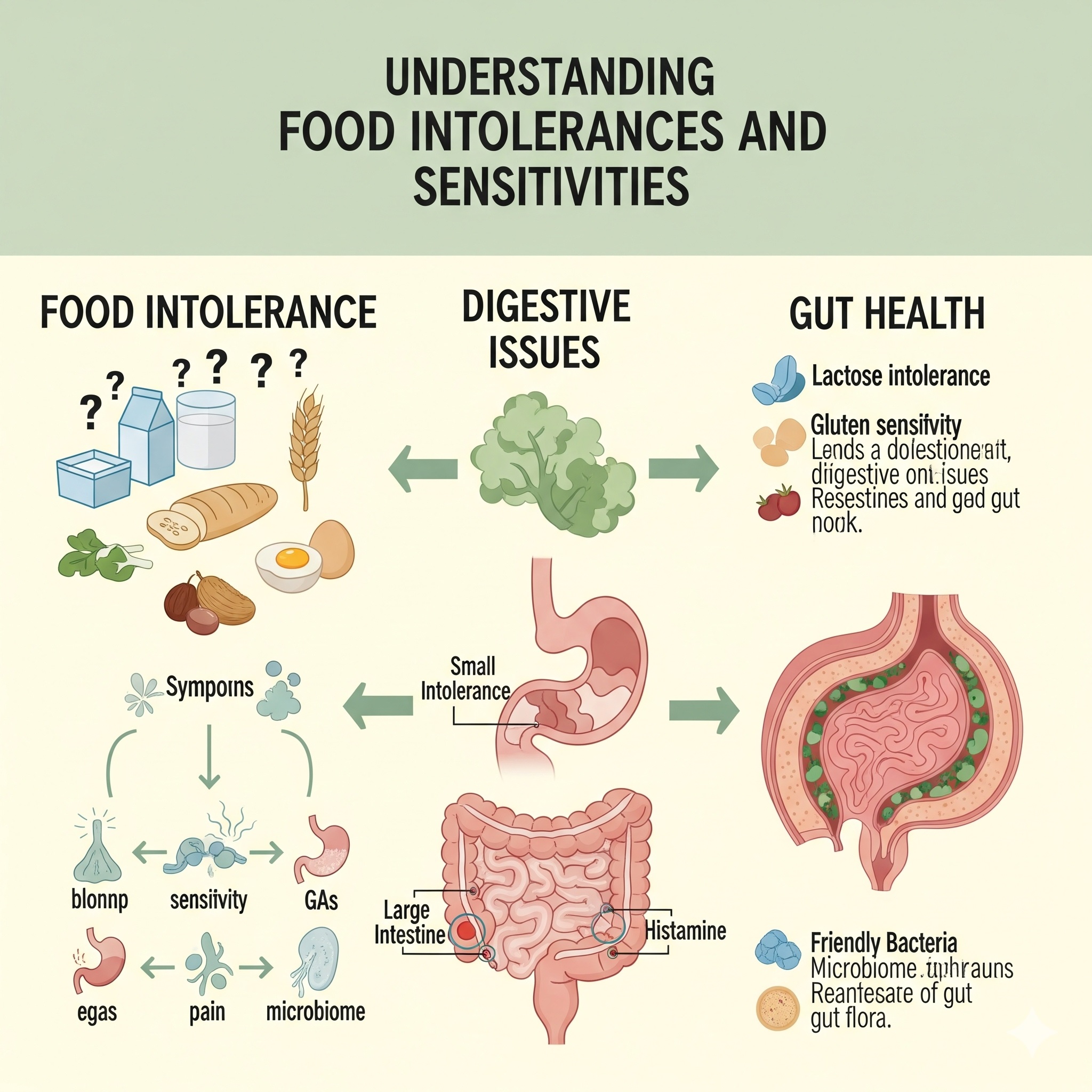Heartburn and acid reflux are among the most common digestive complaints in modern society. Millions of people experience a burning sensation in the chest, a sour taste in the mouth, or discomfort after meals. While medications can provide quick relief, relying on them long-term may not always be the healthiest option. The good news is that there are several natural reflux remedies and lifestyle strategies that can reduce symptoms, improve digestive comfort, and support long-term gut health.
In this article, we’ll explore what reflux and heartburn are, why they happen, and the most effective natural heartburn relief techniques you can start using today.
What Is Acid Reflux and Heartburn?
Acid reflux occurs when stomach acid flows back into the esophagus, the tube that carries food from your mouth to your stomach. Normally, a muscle at the bottom of the esophagus—the lower esophageal sphincter (LES)—keeps acid in the stomach. If the LES weakens or relaxes inappropriately, stomach contents can travel upward, causing irritation.
Heartburn is the burning sensation in the chest or throat that results from this acid backflow. It often gets worse after eating, when lying down, or during the night.
Common Symptoms Include:
- A burning feeling in the chest (especially after meals)
- Sour or bitter taste in the mouth
- Difficulty swallowing
- Regurgitation of food or liquid
- Chronic cough, sore throat, or hoarseness
If reflux becomes frequent, it may develop into GERD (Gastroesophageal Reflux Disease), which requires medical attention.
Why Does Reflux Happen?
There are several triggers and underlying factors behind reflux and heartburn:
- Dietary choices – Spicy, fatty, or acidic foods, chocolate, coffee, alcohol, and carbonated drinks are common triggers.
- Overeating – Large meals put pressure on the stomach, pushing acid upward.
- Obesity – Excess abdominal fat can increase pressure on the stomach.
- Lifestyle habits – Smoking, alcohol, late-night eating, and lying down too soon after meals.
- Stress – Emotional stress and anxiety affect digestion and weaken the LES.
- Gut imbalance – Poor gut health and low stomach acid can worsen reflux symptoms.
Understanding these causes is the first step in finding natural reflux remedies.
Natural Remedies for Reflux and Heartburn
1. Adjust Your Eating Habits
The way you eat can be as important as what you eat. Try these gut health tips for better digestion:
- Eat smaller, more frequent meals instead of large portions.
- Avoid lying down or going to bed immediately after eating. Wait at least 2–3 hours.
- Chew food thoroughly to support digestion.
- Avoid overeating, which places unnecessary pressure on the stomach.
2. Identify and Eliminate Trigger Foods
Some foods are more likely to cause reflux than others. Common triggers include:
- Fried and fatty foods
- Spicy dishes
- Tomato-based sauces
- Citrus fruits (oranges, lemons, grapefruits)
- Chocolate and peppermint
- Coffee and caffeinated drinks
- Alcohol and carbonated beverages
Keeping a food diary can help you identify which foods worsen your symptoms, making it easier to adjust your diet.
3. Maintain a Healthy Weight
Excess weight, especially around the abdomen, increases pressure on the stomach and weakens the LES. Studies show that even modest weight loss can significantly reduce heartburn and reflux symptoms.
4. Manage Stress
Stress and anxiety don’t just affect your mind—they directly impact digestion. Stress can increase stomach acid production, slow down digestion, and worsen reflux symptoms. Natural stress management practices include:
- Mindfulness meditation
- Yoga and deep breathing exercises
- Regular physical activity
- Spending time outdoors
By lowering stress, you promote both mental health and digestive wellness.
5. Elevate Your Head While Sleeping
Nighttime reflux can be especially uncomfortable. To reduce symptoms:
- Sleep with your head elevated 6–8 inches by using extra pillows or a wedge pillow.
- Avoid lying flat after meals.
- Try sleeping on your left side, which reduces reflux compared to sleeping on your right side.
6. Include Probiotics in Your Diet
A healthy gut microbiome is essential for smooth digestion. Probiotics, often referred to as “good bacteria,” can help restore balance in your digestive system and support gut health.
Foods rich in probiotics include:
- Yogurt with live cultures
- Kefir
- Sauerkraut
- Kimchi
- Miso
- Tempeh
For those who don’t consume enough probiotic-rich foods, probiotic supplements may also be beneficial for reducing reflux and improving overall digestive function.
7. Herbal and Natural Remedies
Several natural remedies are traditionally used to ease reflux and heartburn:
- Ginger: Known for reducing nausea and supporting digestion. Try ginger tea or fresh ginger in meals.
- Chamomile tea: Calms the stomach and reduces inflammation.
- Aloe vera juice: May soothe irritation in the esophagus and reduce acid.
- Licorice root (DGL): Can help protect the lining of the esophagus.
- Apple cider vinegar: Some people find diluted ACV helps balance stomach acid, but it should be used cautiously.
Always consult with a healthcare professional before starting herbal remedies, especially if you take other medications.
8. Avoid Tight Clothing
Wearing tight belts or waistbands can increase abdominal pressure, pushing stomach acid upward. Choosing looser clothing, especially during and after meals, can help reduce reflux episodes.
9. Stay Hydrated—but the Right Way
Drinking enough water supports digestion and helps wash acid down into the stomach. However, avoid drinking large amounts of liquid during meals, as this can expand the stomach and increase reflux. Instead, sip water throughout the day.
10. Limit Alcohol and Smoking
Both alcohol and smoking weaken the LES, making reflux more likely. Reducing or eliminating these habits can dramatically improve heartburn relief and support long-term digestive health.
When to See a Doctor
While natural remedies are highly effective for many people, there are times when professional medical help is necessary. Seek medical advice if you experience:
- Frequent reflux (more than twice a week)
- Difficulty swallowing
- Persistent cough or hoarseness
- Chest pain that mimics heart problems
- Unexplained weight loss
These symptoms could indicate GERD or other serious conditions that require medical treatment.
Long-Term Benefits of Natural Management
Choosing natural reflux remedies doesn’t just provide immediate heartburn relief—it also improves your overall well-being. By focusing on a gut-friendly lifestyle, you benefit from:
- Better digestion
- Stronger gut microbiome
- Reduced reliance on medications
- Improved energy levels
- Enhanced mental and physical health
Natural strategies target the root causes of reflux rather than masking symptoms, making them a healthier, sustainable choice for long-term relief.




